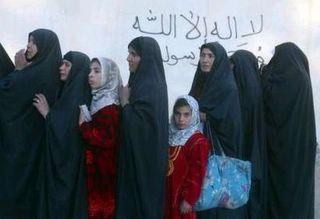Talisman Sabre 05
Australian war resisters enter USA-Australia war games(Talisman Sabre 05) at Shoalwater Bay in Queensland, Australia.
6 Australians were arrested after breaking into the Military Firing Range,north of Yeppoon,Qld. They took with them 6 coffins with photo's of dead Iraqi children and occupied the main road,performing a memorial ceremony and then reading out the names of Iraqi people killed by the "Coalition of the Willing".
After 1 and a half hours of the military (caught by surprise) being inhibited from continuing the war games, the activists were arrested.
Meanwhile, other activists outside the complex blockaded the main entrance of the facility causing long lines of military vehicles, tanks, etc to be stuck in a traffic jam outside,waiting for orders.
Finally the blockade was broken and 4 more arrests took place.
War resisters were released from prison in Rockhampton(beef capital of Australia) and then most people headed to the small town of Yeppoon on the coast for free food supplied by Food Not Bombs and to talk with the local community, who came out in droves to dance to the free music.
The day finished at sunset with "millions"of fruit bats flying along the coast directly into the pristine world heritage areas of Shoalwater where the Americans were performing their sea borne invasion.
In the Evening, the local town hall was packed to overflowing to watch the preview of Film maker David Bradbury's New film "Blowin In The Wind".
The film focuses on the problems with the use of depleted uranium used in modern weapons and talks about the new generation of smart bombs that have been developed since the USA invaded Iraq.
These weapons will be tested for the first time during the next 2 weeks at Shoalwater Bay, in the biggest wargames Australians have ever seen(or not seen, thanks to the war complicent media).
6 Australians were arrested after breaking into the Military Firing Range,north of Yeppoon,Qld. They took with them 6 coffins with photo's of dead Iraqi children and occupied the main road,performing a memorial ceremony and then reading out the names of Iraqi people killed by the "Coalition of the Willing".
After 1 and a half hours of the military (caught by surprise) being inhibited from continuing the war games, the activists were arrested.
Meanwhile, other activists outside the complex blockaded the main entrance of the facility causing long lines of military vehicles, tanks, etc to be stuck in a traffic jam outside,waiting for orders.
Finally the blockade was broken and 4 more arrests took place.
War resisters were released from prison in Rockhampton(beef capital of Australia) and then most people headed to the small town of Yeppoon on the coast for free food supplied by Food Not Bombs and to talk with the local community, who came out in droves to dance to the free music.
The day finished at sunset with "millions"of fruit bats flying along the coast directly into the pristine world heritage areas of Shoalwater where the Americans were performing their sea borne invasion.
In the Evening, the local town hall was packed to overflowing to watch the preview of Film maker David Bradbury's New film "Blowin In The Wind".
The film focuses on the problems with the use of depleted uranium used in modern weapons and talks about the new generation of smart bombs that have been developed since the USA invaded Iraq.
These weapons will be tested for the first time during the next 2 weeks at Shoalwater Bay, in the biggest wargames Australians have ever seen(or not seen, thanks to the war complicent media).




